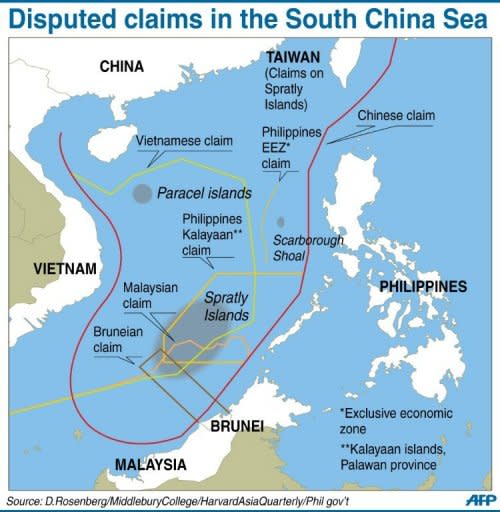China state media accuses Clinton of 'meddling'
China's official Xinhua news agency on Saturday accused US Secretary of State Hillary Clinton of "meddling" in the South China Sea territorial disputes. Rival claims have for decades made the resource-rich waters one of Asia's potential military flashpoints and tensions have risen in the last year with the Philippines and Vietnam accusing China of becoming increasingly aggressive. At an Asian security forum in Cambodia this week, Clinton called on all sides to resolve the disputes "without coercion, without intimidation, without threats and certainly without the use of force". Xinhua said in a commentary: "Though wary of overtly irking China, Clinton further meddled in the South China Sea issue by repeatedly highlighting America's interests there and openly supporting individual ASEAN members' scheme to complicate the maritime dispute." Divisions over members' territorial disputes with China prevented the Association of Southeast Asian Nations (ASEAN) from issuing its customary joint statement at the conclusion of its meeting in Cambodia on Friday. China essentially claims the whole of the South China Sea, which is believed to be rich in hydrocarbons and straddles strategic shipping lanes vital to global trade. Taiwan, the Philippines, Vietnam, Brunei and Malaysia also have claims in the waters, causing regular diplomatic flare-ups. Xinhua accused Clinton of stirring up tensions in 2010 when she said Washington had a "national interest" in the area. She had also urged that maritime rows should be settled by international law, in defiance of China's call to handle them directly with its neighbours. The news agency said "China's maritime territorial sovereignty has been severely infringed this year" by the Philippines, Japan and Vietnam. "Though China always exercises restraint and insists on diplomatic solutions to the disputes, some countries keep challenging China, which certainly has something to do with US re-engagement in the region," it said. "Washington must understand that returning to Asia by way of militarily flexing its muscle and diplomatically intervening in bilateral disputes is wrong and short-sighted."



